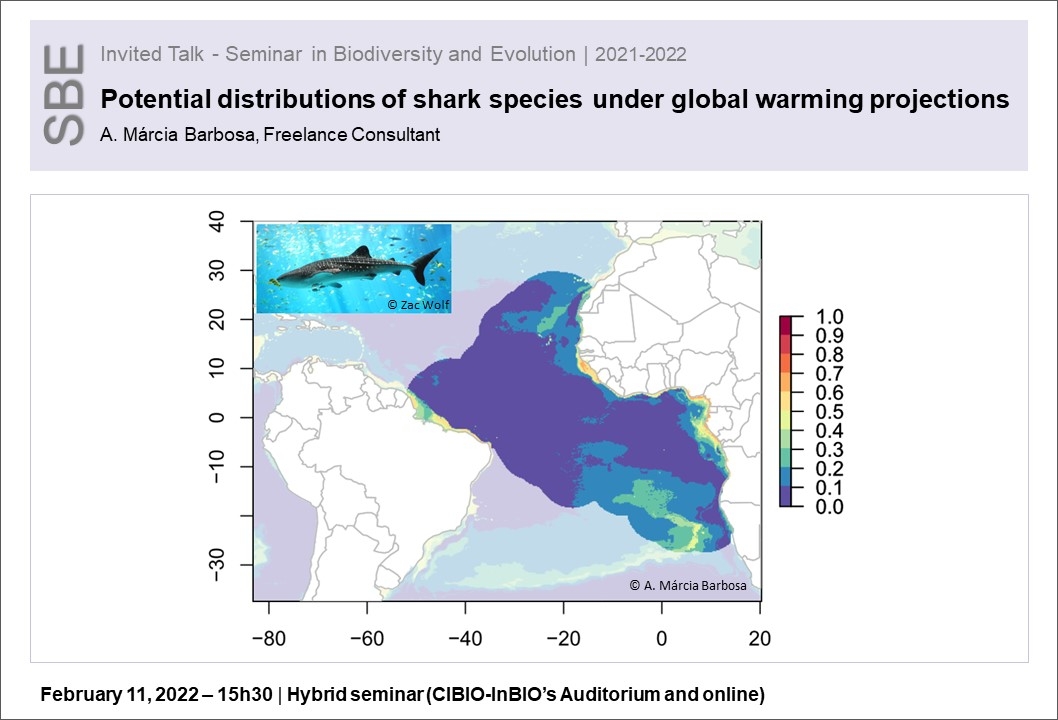Potential distributions of shark species under global warming projections
11 Feb 2022 - A. Márcia Barbosa, Freelance Consultant | 15h30

INVITED TALK - SEMINAR IN BIODIVERSITY AND EVOLUTION
Sharks are key components of oceanic trophic networks, helping maintain ecosystem structure and health. Non-natural shark mortality has increased in the last decades, notably due to fisheries, through direct fishing or bycatch (mainly with tuna fish). Currently, climate change is also driving behavioural and distributional changes and posing potential new threats to shark species. Fishing vessels often carry scientific observers who collect bycatch data using standardized methods. These data reveal which of the areas encompassed by global fisheries are more and less frequented by specific bycaught taxa. This seminar will focus on two international collaborative studies based on wide-scale distribution data of whale shark (Rhincodon typus) on the one hand, and oceanic whitetip shark (Carcharhinus longimanus) and silky shark (C. falciformis) on the other hand. The first study used a weighted ensemble of various methods for modelling a species’ distribution, whereas the second study used a single-method Bayesian machine-learning approach for modelling the distributions of a congeneric pair of species. Rather than presenting a methodological comparative study, we explain the rationale for each of these different approaches and we show their resulting predictions (with associated uncertainty), on both current and projected future marine environments. We discuss limitations of the methods and potential implications of the results for the conservation of these important species.
A. Márcia Barbosa is a PhD in Biological Sciences. Her research interests include biogeography, macroecology, species distribution modelling, biodiversity patterns, and conservation. She has worked mainly on terrestrial vertebrates, but also (within collaborative studies) on marine fish, invertebrates, and plants. She is particularly interested in integrating different scientific fields in multidisciplinary approaches and in developing and applying innovative methodologies, as well as implementing them in free and open-source software. She has published over 70 scientific papers and book chapters, five R packages, and she’s an associate editor for Animal Conservation and for Ecology and Evolution. After 20 years of temporary jobs in academia (in Spain, England and Portugal), she now works as a freelancer in biogeography training, consulting and services.
[Host: Fernando Martínez-Freiría, Biodiversity of Deserts and Arid Regions - BIODESERTS, Phenotypic Evolution - PHENEVOL]